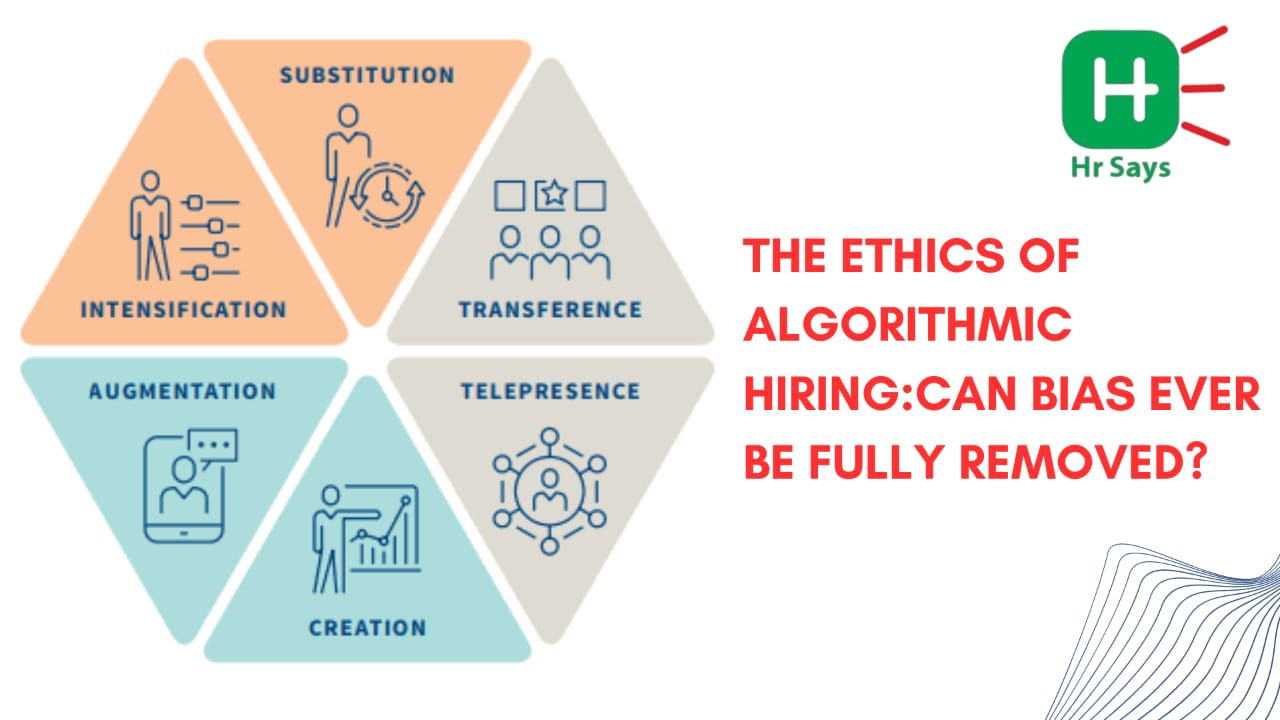What if your job interview was judged by a machine? No eye contact. No handshake. Just data points and scores. Algorithmic hiring is no longer the future—it’s the present. But is it truly fair, or quietly flawed?
The Rise of Algorithmic Hiring
More companies are turning to automation. It saves time. Cuts costs. Looks objective. Resumes are screened. Facial expressions are scored. Patterns are spotted faster than humans can blink. But not everything that’s fast is fair.
Bias Has a Backdoor
Even clean code carries shadows. Bias doesn’t always arrive through intent. It creeps in silently—through:
● Historical data
● Unbalanced training sets
● The way questions are framed
● The traits we choose to measure
If past hiring favored certain profiles, the algorithm learns to do the same. No protest. No questions. Just quiet repetition.
What Makes Bias So Sticky?
Because it doesn’t shout—it whispers. Because it's baked into behavior, systems, and language. Even anonymized data can reflect old patterns. Sometimes, removing gender or ethnicity isn’t enough. Zip codes, schools, even hobbies can hint at backgrounds.
And AI? It’s not biased on its own. It learns what it’s fed.
So, Can It Be Fixed?
Fixing bias isn’t a one-time patch. It’s a process. It takes:
● Diverse datasets
● Regular audits
● Human oversight
● Transparent decision logs
● Ethical review teams
But even then, something may slip. Because hiring is part data, part instinct. And instinct is messy.
The Other Side
Algorithms don’t get tired. They don’t judge accents. They don’t ghost candidates.
When done well, they help spot hidden talent. They reduce human inconsistency. They hold potential—but not perfection.
What Should Be Done?
The answer isn’t to ditch algorithms. It’s to hold them accountable. Ask questions like:
● Who built this model?
● What data was used?
● Are the outcomes tested for fairness?
● Can a rejected candidate understand why?
If a system can’t explain its decision, should it be allowed to make one?
Conclusion
Bias may never fully vanish. But it can be challenged. Tracked. Reduced. Not through code alone—but through intention.
Algorithmic hiring must not be a black box. It must be a mirror—and one we dare to look into.
The goal isn't perfect fairness. It’s better decisions, made with open eyes.
That’s the real upgrade.

 Algorithms promise speed and fairness. But behind the clean code, questions linger. Can bias ever be fully removed from hiring systems built by humans? Or are we just digitizing old prejudices in a smarter format?
Algorithms promise speed and fairness. But behind the clean code, questions linger. Can bias ever be fully removed from hiring systems built by humans? Or are we just digitizing old prejudices in a smarter format?








.jpeg)
.jpeg)

.jpeg)





.jpeg)



.jpeg)

.jpeg)



